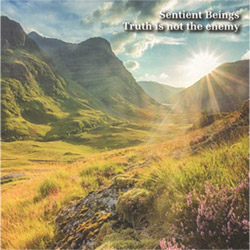
Four singular improvisors from the US and UK -- Faith Heleene Brackenbury on violin, John O'Gallagher on alto sax, Anthony Bianco on drums, and John Pope on bass -- are heard in this live performance of spiritually rich, intellectually deep and powerfully articulate collective free jazz, captured live in 2024 at The Vortex, in London, UK in two extended conversations.
In Stock
Quantity in Basket: None
Log In to use our Wish List
Shipping Weight: 3.00 units
EU & UK Customers:
Discogs.com can handle your VAT payments
So please order through Discogs
Sample The Album:
John O'Gallagher-alto saxophone
Faith Brackenbury-violin, viola
John Pope-bass
Tony Bianco-drums
Click an artist name above to see in-stock items for that artist.
UPC: 5051078014821
Label: Discus
Catalog ID: 183CD
Squidco Product Code: 35230
Format: CD
Condition: New
Released: 2024
Country: UK
Packaging: Cardboard Gatefold
Recorded live at The Vortex, in London, UK, on February 8th, 2024, by Milo McGuire.
"In this world overwhelmed by confusion, it was great to have purpose for 7 days. That's how many dates Sentient Beings had on their tour in February 2024. This recording is the last night of the tour.
As soon as we met, there seemed to be a joy. Joy and camaraderie. As soon as we hit, it was happening.
The purpose was the Truth of playing, bringing us out of the confusion of this world. Truth is. It's in front of us all the time. That's where the music comes from. We all go through the ups and downs of life. Hills and Valleys, but Truth is not the enemy."-Tony Bianco
Artist Biographies
• Show Bio for John O'Gallagher "John O'Gallagher is considered one of the most compelling alto saxophonists and composers at work today on the New York jazz scene. He is known for an innovative style which pushes the boundaries of jazz while rooted in it's tradition. "Mr. O'Gallagher is an exploratory alto saxophonist with a clear melodic streak" - The New York Times Born in Anaheim Califorina in 1964 he began playing alto saxophone in grade school after his family moved to Spokane, Washington. Upon graduating high school he studied briefly at Eastern Washington University before moving to Boston to attend Berklee College of Music. There he studied with legendary saxophone gurus Joe Viola, Jerry Bergonzi and George Garzone. During the past 25 years living in New York he has become known for his projects as a leader, and as a sought after sideman, working with artist such as Joe Henderson, Maria Schnieder, Kenny Wheeler, Billy Hart, Tony Malaby, Jeff Williams, Tom Rainey, Chris Cheek, Ralph Alessi, Rudresh Manhathappa, Mike Formanek, Ben Monder and numerous others." ^ Hide Bio for John O'Gallagher • Show Bio for Faith Brackenbury "Brackenbury studied violin and piano classically at music school, diversifying into jazz, folk, rock and improvisation at Brunel University. Whilst there she played in the Irish folk band Slainte and with Hot Club bands. Going on to study violin making at Merton College and with luthier John Langstaffe she made the violin she now plays on. She completed a Pg dip in Jazz Performance at Birmingham Conservatoire in 2014 then played and sang with alto sax player Martin Speake in his band Mafarowi, with guitarist Rob Luft and drummer Will Glaser. The two recorded an improvised album 'Zephyr' in 2016. Her 'KnifeAngel Suite' sextet ep was released in 2019, in response to the Knife Angel sculpture by Alfie Bradley, and the rising rate of knife crime in the UK ." ^ Hide Bio for Faith Brackenbury • Show Bio for John Pope John Pope: "Who am I, indeed? Well, for starters: I am a bass player. I play both electric bass and double bass, with a pretty even split in focus. I am an improviser. Most of the music I make is based in contemporary forms of improvisation, mostly along the lines of ‘jazz’ or ‘free improvisation’. Of course, my rock or funk sides also like to make their presence known. I live in Newcastle upon Tyne, in the North East of England. I have done since about 2005. I believe in magic, and that it exists when performers are given space to make art. Music is my primary way of doing this. As well as making music I’m also a devoted fan of comic books, tapletop RPGs and assorted culty, fringe geekery. My life pretty much revolves around those two points, and I’m equally geeky about both. It’s a good way to be!" ^ Hide Bio for John Pope • Show Bio for Tony Bianco "The unlimited vistas of music show us our own limitless perceptions of our being. My hopes of music are my hopes for art and humanity. I was born in New York City, the son of a drummer and the grandson of a guitar player. I always saw music as a work of heroes. My father saw music more as a vocation than an occupation. I was lucky. Growing up in New York City I could experience the greatest sounds in jazz. Seeing these greats play was a blessing. I remember seeing Elvin, Mingus, Art Blakey, Woody Shaw, Miles, Liebman, Tony Williams, Dexter Gordon, Ron Carter. What an experience. This intensified my love for this music. I always thought that there was a point to it all. A reason. I took chances in my life because of this. I was always single-minded. I had a hard time compromising. I knew being a musician was a career, but I was never business minded. I just floated. Of course, my father was always anxious for me. He wanted me to play some kind of jazz he understood, but I just played what I heard at the time. I felt jazz was a very contemporary sound, not just a sound that was based on the past although I have great respect for the past. I think these perceptions come naturally from the time we live in. Progress. What is sound? What is perception? I never felt I was good enough. A father who loved the greats can be very intimidating. I was always searching for some perception that was my own. There was a time I thought 'forget music - it's impossible. You'll never have your own attitude'. Then I heard John Coltrane. He made me feel it was possible. Praise and Thanks. Of course growing up in New York I thought these sublime thoughts but I had to make a living. I thought of myself as a drummer. I did what I thought a drummer should do. I became, of course, less idealistic and did all kinds of work - any work that would come my way. This included all genres. I thought of myself as a jazz musician but I seemed to be playing everything else except jazz. I got a steady gig in New York City in a warm-up band in a famous comedy club - Catch a Rising Star. It's a legendary comic club that a lot of the great comedians came through (Jerry Seinfeld, Chris Rock, Robin Williams, Richard Belzer). It was actually a great experience - kind of like a talkshow band (Jay Leno, David Letterman). It was a steady gig and it was real easy, and of course I could just float. The bass player on the gig was Lloyd Mair. He was a devotee of avant garde music and jazz. He knew some really interesting things about jazz. I learned a lot from him. Lloyd was great. Of course being at this club I played in some pretty interesting situations - Edgar Winter, Pat Benatar. I even played drums behind Andy Kaufman doing his Elvis routine. This club had more of a vibe than anything else. Anyway, it was a steady gig (five years). In that time I explored my own ideas and met a lot of musicians. One became a close friend - a tenor player Mac Goldsberry. He introduced me to a lot of the New York City players even though he was from Texas. Through him I played and recorded with Ed Schuller, Herb Robertson and Charlie Elgart (a commercial FM sounding jazz). I started to write music at that time. I made a recording with John Hart on guitar. At the same time I hooked up with (through Goldsberry) the singer, writer, jazz musician and poet Bob Lennox and his son Adam. Through Adam I first met Liebman. We did a record and gig doing this progressive rock thing. At this time also I also did a recording with Anthony Jackson, the legendary electric bass player. I also started to play more free jazz at this time. But things in New York for me weren't really going well. I broke up with my first wife and was feeling kind of dark. I was really going through a lot. There was a lot more going on than I could write about. You dig? I met some musicians from the University of Miami (Mike Gillis, legendary guitar player and great guy) and went to Japan for a few months with them. On coming back to the U.S. one of the teachers from the University said why don't you come to Miami - maybe we could hook you up with a teaching gig there. Then I thought, well okay, what else is there to do. I went to the International Jazz Educators Seminar at the University to check it out - see if I could get a gig. Anyway, at one of the parties that night I met Liebman, and he said to me 'What are you doing here?' I said maybe I can get a gig teaching here. Then he said forget that - go to Berlin where some of your mates went to live and play jazz (Lennox, Goldsberry). Liebman said that I needed to get out of NYC to see myself. He said if you were born there you needed to get out to feel yourself - New York is such an intense city (that was 1990). Anyway, I decided to got to Berlin - I had some money from that gig in Japan and borrowed some money from my Japanese girlfriend (Naomi) and sold my grandfather's vintage guitar (I got ripped off) and went off to Berlin. I moved to Berlin in 1991. It was great. The Berlin Wall had recently come down and there was a good feeling in the air. I started to do more of the music I wanted to do (jazz). This city had a very free feeling. I started to work with Alex von Schlippenbach and his wife Aki Takase, and Gerd Dudek. I had an opportunity to hang and play with Reggie Workman on a Schlippenbach gig and was very honoured that he seemed to like me. I was learning more about the European free improv scene. At the same time I worked with the late legendary bass player Jay Oliver who influenced me in some rhythmic concepts and attitude. I was also privileged to work with the late gypsey guitarist Costa Lucas. My rhythmic concepts really took a turn when I worked with Hans Hartman (bass and stick player) and Turkish percussionist Mesut Ali - these guys could really play in different time signatures. At this time I was really understanding a different sort of sound. I lived in Berlin until 1995. I felt a longing for some familiarity at this point (the English language). I returned to New York for a few months, then joined my wife (who I met in Berlin) in London. We had enough money for one month's rent and a phone. I had to borrow my first drum set, but somehow met some of the guys. I met Loz Speyer (great guy) who got me a drum set and he introduced me to a lot of the straighter players. I also met Alex McGuire who introduced me to Elton Dean, from where I met the rest of the free scene. I met Paul Dunmall and we played and recorded some great music together. I also made some great music and recordings with Elton. I started to complete some of the ideas I came up with in Berlin. I came up with a project called Freebeat with Elton Dean and sound engineer, Jon Wilkinson. It was a concept of playing through time signatures but playing also free through it. It never materialised as a label-released record but it inspired a lot of ideas. These ideas interested Dave Liebman. I recorded a similar but different project with him in Berlin (2003). These ideas and projects were never released either but I am working on it. The CD 'In a Western Sense' handles some of these same concepts. I think that time signatures are a way of defining phrasing. My music really doesn't watch the time signature as much as the phrasing. Through beats (a drum thing) you can keep a pulse but have no number on the pulse. It's not in 1-1. That's impossible, since the phrasing has to be in one and it's not. It is actually many different time signatures but one pulse. I could explain this in more detail but not on a website bio. Anyway, this concept influenced practically all my musical ideas. Time and no time were brought together. Liebman told me I came into the world to do this. Who knows. The thing is that my improvised and free music seems to have this pulse in it. It is done quite unconsciously on some level (I think it was to do with my studies or working out these concepts) and on another level quite deliberate. I do have a method. Sometimes great complexity is held together by great simplicity. Anyway, I moved to London in 1996 - it's been good and bad - what hasn't? It's been a hard place for me to meet people but I did get some records out. I played and recorded with Paul Dunmall, Elton Dean, Simon Picard, Paul Rutherford, Keith Tippett, Paul Rogers, Marcio Matthos and John Edwards. Some great music was played. I was also very fortunate to meet the band that played 'In a Western Sense' - Zoe Rahman, Carlos Lopez-Real and Oli Hayhurst. I have (probably because I am an American) the need to combine the sounds of straight and free jazz. It is part of my instinct. Like many other musicians at this time. It seems to be what is happening. Reason and chaos, chaos and reason. Maybe it resolves in peace."-Tony Bianco ^ Hide Bio for Tony Bianco
11/20/2024
Have a better biography or biography source? Please Contact Us so that we can update this biography.
11/20/2024
Have a better biography or biography source? Please Contact Us so that we can update this biography.
11/20/2024
Have a better biography or biography source? Please Contact Us so that we can update this biography.
11/20/2024
Have a better biography or biography source? Please Contact Us so that we can update this biography.
Track Listing:
1. Hills And Valleys 34:33
2. Valleys And Hills 36:44
Improvised Music
Jazz
Free Improvisation
Collective Free Improvsation
London & UK Improv & Related Scenes
NY Downtown & Metropolitan Jazz/Improv
Quintet Recordings
Recent Releases and Best Sellers
New in Improvised Music
Search for other titles on the label:
Discus.


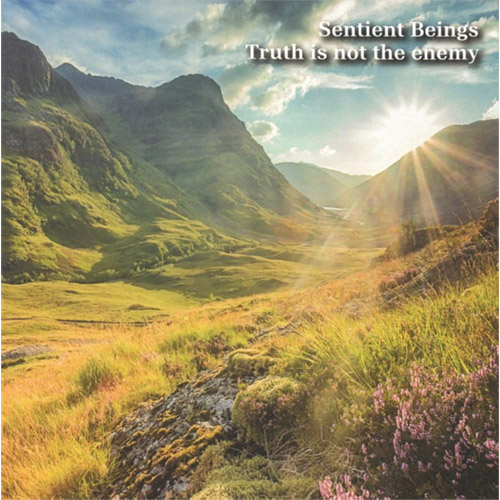
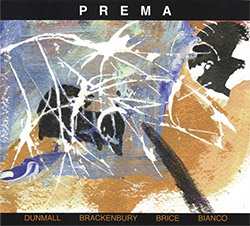
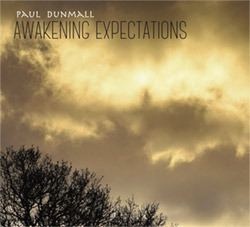
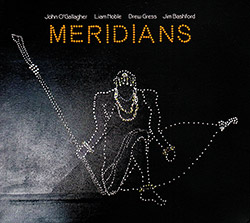

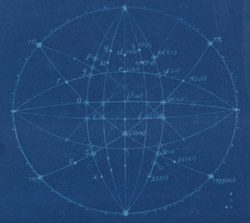

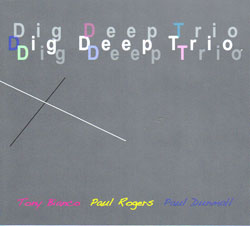
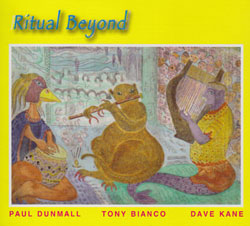
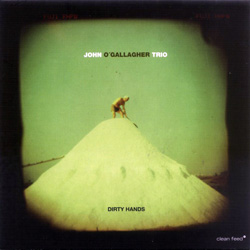
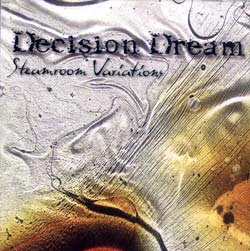
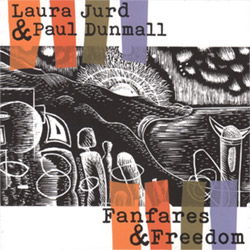

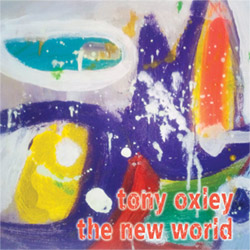
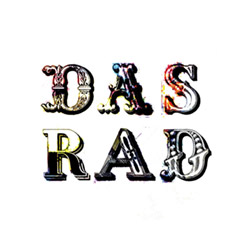
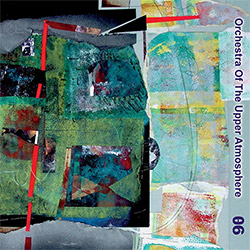
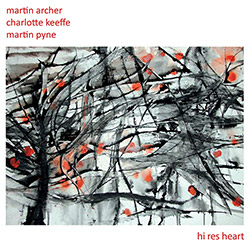


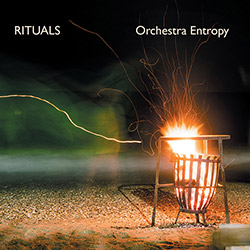

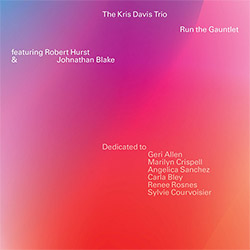
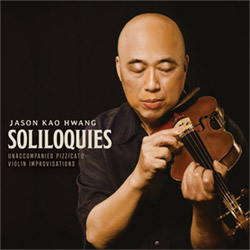
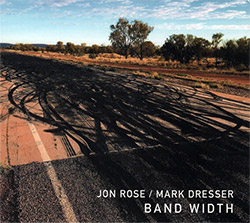

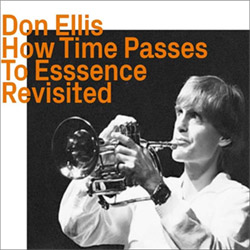
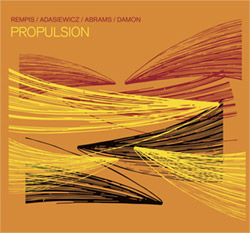


![Guy, Barry / Ken Vandermark: Occasional Poems [2 CDs]](https://www.teuthida.com/productImages/misc4/34849.jpg)
![Novoa / Carter / Mela Trio: Vol.1 [VINYL]](https://www.teuthida.com/productImages/misc4/35236.jpg)


![Elephant9 : Mythical River [VINYL]](https://www.teuthida.com/productImages/misc4/34624.jpg)
![Evans, Peter (Evans / Eldh / Black): Extra [VINYL]](https://www.teuthida.com/productImages/misc4/35279.jpg)

![McPhee, Joe: Straight Up, Without Wings [BOOK]](https://www.teuthida.com/productImages/misc4/35454.jpg)
![Jeck, Philip: rpm [2 CDs]](https://www.teuthida.com/productImages/misc4/35455.jpg)













![Barker / Parker / Irabagon: Bakunawa [VINYL]](https://www.teuthida.com/productImages/misc4/35533.jpg)
![Blaser, Samuel / Marc Ducret / Peter Bruun: Dark Was The Night, Cold Was The Ground [VINYL 10-inch]](https://www.teuthida.com/productImages/misc4/35492.jpg)







![Warren, Kenny (Warren / Hoffman / Ellman): Sweet World [VINYL]](https://www.teuthida.com/productImages/misc4/35451.jpg)




![Blake, Ran / Dave Knife Fabris: Live Amsterdam 2006, First Visit [CD + POSTCARDS]](https://www.teuthida.com/productImages/misc4/35275.jpg)













![DNS: Taking Big Bites Of The Khandas Three Cafes Deep [2 CDs]](https://www.teuthida.com/productImages/misc4/35334.jpg)




![Cleaver, Gerald: The Process [VINYL]](https://www.teuthida.com/productImages/misc4/34966.jpg)




![Alva Noto: HYbr:ID II [VINYL 2 LPs]](https://www.teuthida.com/productImages/misc4/35201.jpg)

![Baron, Derek / Luke Martin: Distinct and Concealed [CASSETTE + DOWNLOAD]](https://www.teuthida.com/productImages/misc4/35079.jpg)

![Lyle, Erica Dawn : Colonial Motels [CASSETTE + DOWNLOAD]](https://www.teuthida.com/productImages/misc4/35080.jpg)









![Sanna, Claudio: Compositori Sardi Contemporanei II [2 CDs]](https://www.teuthida.com/productImages/misc4/35317.jpg)







![Zurria, Manuel: Fame di Vento [3 CDs]](https://www.teuthida.com/productImages/misc4/35167.jpg)

![Granberg, Magnus / Nattens Inbrott / Skogen: Holde Traume, Kehret Wieder! [2 CDs]](https://www.teuthida.com/productImages/misc4/35038.jpg)
![Frey, Jurg: Outermost Melodie [2 CDs]](https://www.teuthida.com/productImages/misc4/35039.jpg)

![Pavone, Jessica: Reverse Bloom [VINYL]](https://www.teuthida.com/productImages/misc4/34895.jpg)




![Modney (Modney / Wooley / Gentile / Roberts / Pluta / Symthe / ...): Ascending Primes [2 CDs]](https://www.teuthida.com/productImages/misc4/34852.jpg)









![Elephant9 with Terje Rypdal: Catching Fire [VINYL 2 LPs]](https://www.teuthida.com/productImages/misc4/35355.jpg)
![Deerlady (Obomsawin, Mali / Magdalena Abrego): Greatest Hits [VINYL]](https://www.teuthida.com/productImages/misc4/34876.jpg)



![Haino, Keiji: Black Blues [2 CDs]](https://www.teuthida.com/productImages/misc4/35109.jpg)



![Surplus 1980: Illusion of Consistency [CD]](https://www.teuthida.com/productImages/misc4/35069.jpg)
![Staiano, Moe: Away Towards the Light [VINYL + DOWNLOAD]](https://www.teuthida.com/productImages/misc4/35037.jpg)



![Caveira (Gomes / Sousa / Abras / Ferrandini): Ficar Vivo [VINYL]](https://www.teuthida.com/productImages/misc4/34643.jpg)
![Gregg, J. J. / David Van Auken: Lunar Prairie [CD w/ DOWNLOAD]](https://www.teuthida.com/productImages/misc4/34611.jpg)

![Coultrain: Mundus [VINYL]](https://www.teuthida.com/productImages/misc4/32439.jpg)
![Mattin: Songbook #6 [VINYL]](https://www.teuthida.com/productImages/misc4/27317.jpg)
![Punkappella: Wake Up [7-inch VINYL]](https://www.teuthida.com/productImages/misc4/17519.jpg)
![Residents, The: WARNING: UNiNC.: Live And Experimental Recordings 1971-1972 [VINYL 2 LPs]](https://www.teuthida.com/productImages/misc4/31521.jpg)
![Coultrain: Phantasmagoria [VINYL]](https://www.teuthida.com/productImages/misc4/30142.jpg)
![Lennon, Sean Ono: Asterisms [VINYL]](https://www.teuthida.com/productImages/misc4/34517.jpg)

![Coley, Byron: Dating Tips for Touring Bands [VINYL]](https://www.teuthida.com/productImages/misc4/17906.jpg)

![Lost Kisses: My Life is Sad & Funny [DVD]](https://www.teuthida.com/productImages/misc4/lostKissesDVD.jpg)